Are you searching detailed information about Russia Student Visa? then you have landed on the right article. Considered to be one of the largest countries in the world, Russia attracts various international students from all over the world, especially for STEM courses.
Table of Contents
Russia is the epitome of modernity and culture; it is home to both world heritage monuments and one of the world’s strongest economies. Russia is presently regarded as a top choice for higher education because of the nation’s significant achievements in the fields of research and education.
Additionally, There are tons of Russian government scholarships for international students that’ll allow them to save money on their tuition, hence making the education there extremely cost efficient.
This blog covers the prerequisites, expenses, processes, documentation, and more for individuals who wish to pursue higher education in Russia.
Key Takeaways:
- Russian student visa is applicable for students who are members of the EU/EFTA nations.
- Citizens of certain countries such as Kyrgyzstan, Armenia, and Belarus do not require a visa or passport to study in Russia.
- To be eligible for a Russian student visa, students should have a confirmed admission from a Russian university and should have submitted the required documents.
- The documents required for a Russian student visa are visa support documents, and HIV test certificates among many others.
- Applicants can apply for a Russian student visa online after reviewing the eligibility requirements given by the embassy.
- Students can work in Russia after seeking a work permit from the Federal Migration Service.
Who requires a Russian student visa?
To study in Russia, nationals of most other countries must get a Russian student visa. Since Russia is not an EU/EFTA member, EU/EFTA nationals are not permitted to enter Russia without a visa.
Inhabitants of two partially recognized nations and nationals of the Commonwealth of Independent States (CIS) are exempt from needing a visa to study in Russia. These nations are:
- Abkhazia
- Armenia
- Azerbaijan
- Belarus
- Kazakhstan
- Kyrgyzstan
- Moldova
- South Ossetia
- Tajikistan
- Ukraine
- Uzbekistan
It is believed that over half of the 283,000 international students studying in Russia were citizens of these nations.
Citizens of Kyrgyzstan, Armenia, Belarus, Kazakhstan, and Ukraine do not require a visa, however, they do require a current passport. Citizens of South Ossetia, Moldova, Abkhazia, Tajikistan, Uzbekistan, and Tajikistan are exempt from needing a passport or visa to study in Russia.
Russia has visa-free travel agreements with several other nations for visits lasting between 14 and 90 days. These nations’ citizens do not require a visa to enter Russia; however, once there, they must get a Russian student visa from the Russian General Directorate of Migratory Affairs (GUVM). Typically, these agreements are for visitors and include up to three-month restrictions. Instead, think about obtaining a Russian student visa for longer courses.
What is the eligibility for a Russian student visa?
It is necessary to confirm that you qualify for a Russian student permit before you can apply for the visa. A few requirements that must be met to be granted a student visa for Russia are listed below:
- You should have a confirmed admission in Russia:
- Applicants should have applied to an institution or university where they wish to pursue their education.
- Their admission must be confirmed and there should be necessary documentary proof of the same.
- Apart from this, valid documents should also be submitted.
- The education documents should be verified.
- Applicants should submit a valid proof of their previous highest education degree.
- You are required to be healthy to visit Russia.
- Before entering the nation, you must undergo a medical examination and present the necessary documentation.
- Applicants should have enough money to pay for their stay as well as other costs in Russia.
- You must have enough money on hand or have access to enough money to pay for your stay as well as other costs in Russia.
- Submission of a bank statement or any comparable document is required, along with supporting documentation.
- If an applicant has a sponsor, they must provide proof of their financial security, which should be adequate to cover the cost of their study.
Additionally, the guarantor documents must be authentic and turned in at the time of application.
Documents required for a Russia student visa:
The main part of every Russian visa application process is collecting and assembling documents. The documents needed for Russia student visas are:
1. Visa support for students:
This document primarily supports your reasons for entering Russia. There are three forms of valid invites for a study visa to Russia. Any of the following will be accepted:
- An invitation from the Russian Federation’s Ministry of Interior: This invitation is sent to you on behalf of your Russian university. It must be delivered to the embassy in its original, electronic, or print format.
- A telex invitation from the Russian Federation’s Ministry of Foreign Affairs: This kind of invitation should be requested by your Russian university at the Russian Ministry of Foreign Affairs.
The invitation will subsequently be forwarded by the ministry to the Russian embassy in your nation of residence. You should receive a six-digit number from the university, which you must give to the embassy.
- A copy of your Russian university’s direct invitation letter: This type of invitation is only good for a single, brief study session and cannot be extended.
The letter needs to be signed and stamped by the university’s rector or the head of the international department. Remember that the letter must be printed on Russian University’s official stationery.
2. HIV Test certificate:
This test should be taken within the preceding three months before the application. The certificate should be valid for 15-30 days on the day of application.
3. Health insurance policy document:
Only nationals of the EU, Iran, Iceland, Israel, Liechtenstein, Monaco, Norway, and Switzerland are subject to this requirement. The document needs to be produced by a Russian or international insurance company and include the following information:
- Their full name
- The date when the agreement was signed
- The policy number and details of the insurer
- The dates of validity
- List of medical services the insurance covers including repatriation in case of death.
- The geographical area that the insurance will cover. It should include Russia.
How to apply for a Russian student visa?
The process of obtaining a student visa for Russia mainly happens offline. Before moving ahead with the application process, applicants should ensure that they are eligible for the visa.
This can be accomplished by reviewing the eligibility requirements that the embassy provides. The steps involved in obtaining a study permit for Russia are as follows:
- Applicants can start by filling out the Russian student visa application form. This step can be done online. The application form can be downloaded and printed by applicants as well.
- Collect all the relevant documents as per the given checklist.
- Attach all the recent photographs with the application.
- Submit the required documents and the application form to the Embassy of the Russian Federation.
- Pay the stipulated visa fees.
An appointment must be arranged on the web portal before submission. A Russian student permit is a long-term permission, and getting one involves several difficult steps.
Additionally, it is crucial to confirm that the application form is correctly completed and that the data provided corresponds with the information included in the passport and any other supplied travel papers.
The application may be denied if any of the information is discovered to be fictitious or untraceable. Your future attempts to obtain a student visa for Russia, or for any other country, may be impacted by a visa rejection.
Photograph specifications for Russia student visa:
The photographs submitted by applicants for Russian student visas have to follow the guidelines given below:
- Two photographs should be provided
- The photograph size should be 35 mm x 45 mm.
- Only colored copies should be provided.
- The photograph should be in JPEG format for an E visa.
- The submitted photograph should not be more than 6 months old
- The face of the applicant should cover around 70-80% of the frame.
- The head should be positioned in the middle of the frame.
- The background of the photograph should be white.
- Both the ears of the applicant should be visible.
- The teeth of the applicant should not be visible.
- The photograph should be taken in a clear light.
- There should be no red eyes or flashes messing with the image.
- Applicant cannot wear a headgear except for religious reasons.
- The clothing should not match the background.
What is the validity of a Russian student visa?
The validity of a Russian student visa varies depending on the type of courses which has been chosen by the applicant. For short-term courses, it can be around 3 months, and for long-term courses, it could be for around 1 to 4 years.
What is the processing time of a Russian student visa?
A student visa for Russia must be obtained within 20 to 30 working days of the application being submitted. The volume of work at the embassy, upcoming vacations, and the availability of officials for the procedure are among the factors that may impact how long it takes to receive a study visa for Russia.
Mandatory registrations after you arrive in Russia:
International students who enter Russia are required to complete a migration form. These forms are then distributed to planes, train connections, and passport control officers at airports and stations.
As students pass through border controls, they will be handed a detachable portion of the form. This is called the migration card which will be required until the student leaves Russia. This card is valid throughout your stay. If students leave Russia, they must complete a new form on return.
Additionally, foreign students are required to register with the Russian Federal Migration Service within seven days of their arrival. However, most of the time the university organizes this for the students.
Applicants should go to the International Student Affairs department within three days of arriving in Russia. Applicants will have to submit the original and copies of documents such as passports, visas, and migration cards.
The university will then give students the migration card stamped by the Russian Federal Migration Service. This allows students to stay in Russia for three months and then for a year.
Two weeks before the visa expires, students should contact the International Student Affairs department to the document extended. There is no extra charge for registering or extending the arrival document.
Working in Russia as a student:
Unless your job is done at your university or during the holidays, you will need a work permit from the Federal Migration Service (FMS) if you are a student with a Russian visa.
If you are at least eighteen years old and enrolled full-time at a state-accredited university, you will be the primary person to receive a work visa. You may only work in the fields or professions specified in the permission, as well as in the city or area surrounding your institution.
For individuals on a Russian student visa, a work permit costs RUB 3,500. If an international worker is discovered working in Russia without valid authorization, they could be fined RUB 7,000 and even deported from the country.
Obtaining a work permit from your local Federal Migration Service typically takes ten days. You must turn in the following paperwork:
- The applicant’s passport
- The migration card
- Application form
- Employment contract
- Medical certificate which confirms the HIV negative status, no infections or addiction to drugs.
- Confirmation from the university that the student is enrolled in a full-time course.
For the length of the job contract, foreign students’ Russian work licenses are valid for an additional year. During this time, you are free to change occupations, but you will need to notify the Migration Service. You will no longer be permitted to work in Russia if you drop your university course and your work permit is revoked.
How to extend your Russian student visa?
If a student wishes to continue their studies in Australia, they must extend their visa. If they stay in Russia with an expired visa, they risk a fine between RUB 5,000 and 7,000 and even a five-year ban on entering Russia in the future. Students should contact the international office of their university at least 30-40 days before their visa expires.
To extend the visa, students will need:
- Your passport
- A completed application form
- A photograph
- A copy of your enrolment agreement or a referral from the Ministry of Education and Science of the Russian Federation
- A letter setting out the reason you need the visa extended
- Migration card both original and copy
- The detachable section of the arrival notification form
- The fee which is around RUB 1,600
Reasons for rejection of Russian student visa:
The procedure of obtaining a student visa for Russia can be difficult, and applications are occasionally turned down. These are some typical explanations for why Russian colleges could refuse your student visa:
1. Wrong or incomplete documentation:
Incomplete or inaccurate documentation is one of the most frequent grounds for the denial of a student visa. Make sure you have all the required paperwork and that it is completed accurately. Your visa may be denied if there are any mistakes or missing details.
2. Inadequate Funding:
You must provide evidence that you have enough money to pay for your living expenses and tuition to be granted a student visa to enter Russia. You risk having your visa application denied if you don’t submit sufficient proof of your financial stability.
3. Previous Visa violations:
Your application for a visa to Russia may be adversely affected if you have a history of breaking visa laws or overstaying your visa in other nations. Before applying for a student visa, be sure you have a spotless background with visas.
4. Unpredictability in the submission:
Your application and supporting documentation could be questioned if there are any discrepancies, which could result in the denial of your visa. Ensure that every piece of information you submit is true and consistent with the rest of your application.
5. Insufficient language proficiency:
If the program of your choice is taught in Russian, obtaining a student visa will require you to prove your language competency. Your application can be turned down if you can’t show proof of your language skills.
6. Security issues:
Your visa may be denied if there are security issues about your past or actions. It’s crucial to make sure you don’t engage in any actions that can lead to suspicion and that your record is spotless.
What is the cost of a Russian student visa?
The consulate fees for a Russian student visa is applicable only to US citizens.
| Number of entries | Consular fee |
| Single entry | $160 |
| Double entry | $160 |
In addition to the consulate fee, applicants are also required to pay $28 at the Russia Visa Application Center Service for each visa application.
Frequently Asked Questions:
1. How do I get a student visa for Russia?
Some of the steps to applying student visa for Russia are:
– Get the invitation for a student visa to Russia
– Applicant should complete the Russia student visa online
– Applicants should submit the documents for a Russian student visa.
– The applicant should apply in person if needed.
– The students should pay a fee for a Russian student visa.
2. Does Russia issue student visas?
The first term of a Russian student visa is three months. To extend your visa, you must next apply to the local branch of the Russian Federation’s Federal Migration Service.
3. Can students get PR in Russia?
After receiving a temporary residency permit, you have three years to apply for a permanent residence permit. You may potentially be qualified for Russian citizenship through the PRP.
4. Who is eligible for a student visa?
To go to a certain location, you must demonstrate that you have the financial means to cover your living expenses as well as the tuition for any family members traveling with you. Students should also have a strong academic background and track record.
5. Is IELTS required for a Russian student visa?
No, a Russian student visa does not require the TOEFL or IELTS. There’s no need to flash a big wad of cash. A valid passport with at least two blank pages is required. Student applications for Russian visas must be filled out and signed.
Conclusion:
The duration of the Russian student visa is ninety days. Additionally, the Ministry of Interior has the power to prolong its validity for the length of the selected course. As soon as they arrive in Russia, students need to submit their applications for visa extensions.
The success percentage for Russian student visas is quite close to 100%. This implies that the likelihood of having a visa denied is quite low. A Russian student visa can be obtained by foreign students who satisfy the requirements and have provided the necessary paperwork for the application.





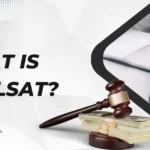
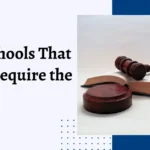

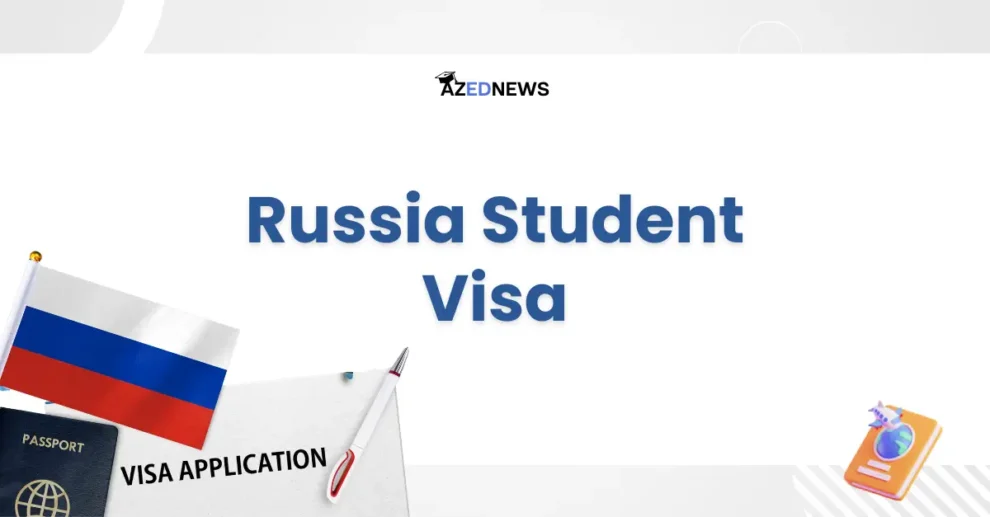
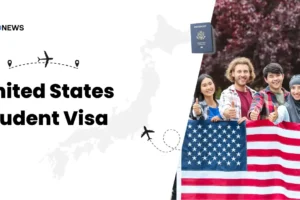
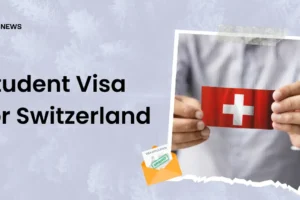
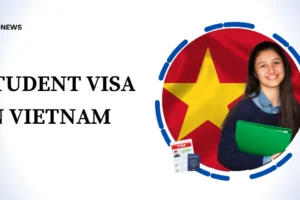
Add Comment